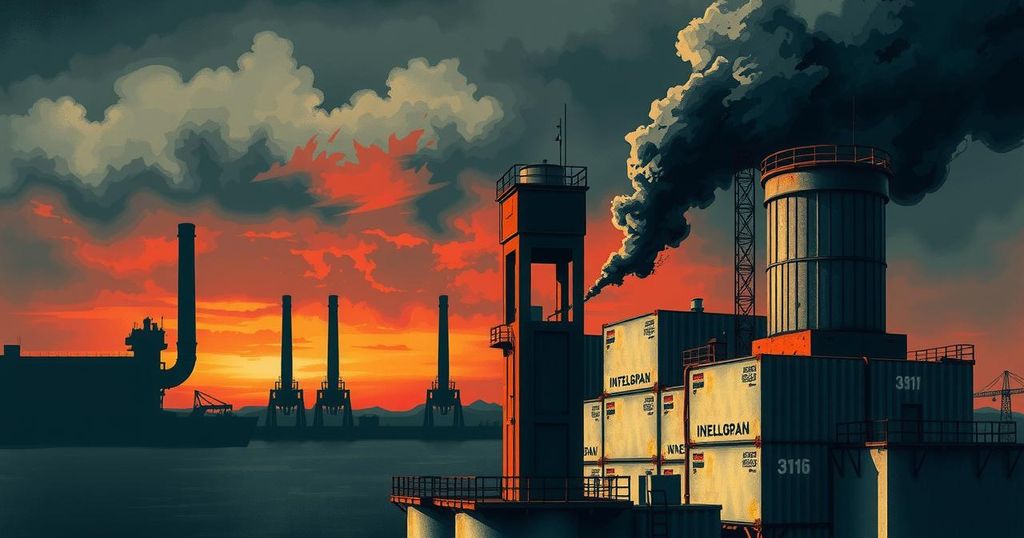Qatar Intensifies Pressure on Israel Over Iranian Nuclear Concerns

Qatar has escalated its criticism of Israel, particularly concerning potential strikes on Iranian nuclear facilities. The Foreign Minister’s warnings highlight the risks to regional water supplies, urging the U.S. to pursue a diplomatic deal with Iran. Qatar’s stance includes advocating for international oversight of Israeli nuclear activities amid ongoing ceasefire negotiations in Gaza.
Qatar has intensified its critique of Israel, particularly concerning potential attacks on Iranian nuclear sites. The Qatari Foreign Minister articulated these concerns during an interview on Tucker Carlson’s Show, emphasizing the devastating consequences such an assault could have on regional water supplies. Iranian state media reported his warning that “Persian Gulf states will run out of drinking water in three days if Iran’s nuclear sites are attacked.” This indicates a strategy to encourage the U.S. to negotiate a new deal with Iran instead of escalating tensions that may lead to military conflicts.
This pattern of communication from Qatar aligns with its broader diplomatic efforts. Recently, Qatar criticized Israel’s Shin Bet intelligence agency for attributing financial support from Doha to Hamas’ capabilities. A statement from Qatar’s International Media Office rebuffed these claims, labeling them as “false accusations” aimed at deflecting responsibility in Israeli politics. Large-scale protests and media scrutiny in Qatar further illustrate the complexities of its diplomatic positioning regarding Israel.
In a decisive move over the weekend, Qatar advocated for Israeli nuclear facilities to be subjected to oversight by the International Atomic Energy Agency (IAEA). During a session in Vienna, Qatar proposed that Israel align with the Non-Proliferation of Nuclear Weapons Treaty (NPT), signaling its continued involvement in ceasefire discussions in Gaza. Reports suggest Israel is at a disadvantage in these negotiations, as Qatar and Hamas wield significant influence.
Particularly noteworthy are the Qatari Foreign Minister’s remarks to Tucker Carlson, which resonated positively with Iranian media. Al Thani warned that a military strike on Iran’s nuclear infrastructure, located near the Persian Gulf, risks contamination that would affect regional water supplies. The implications are dire: such an event could leave Qatar, Kuwait, and the UAE without water within days. Despite these tensions, Al Thani remains hopeful for a diplomatic resolution to the Iranian nuclear situation, asserting Qatar’s opposition to military intervention in the region.
In summary, Qatar’s recent diplomatic strategy highlights its growing influence and critical stance towards Israel, particularly concerning Iranian nuclear vulnerabilities. Through high-profile interviews and calls for regulatory oversight of Israeli nuclear activities, Qatar is asserting its position in regional politics while advocating for peaceful diplomatic solutions. The developments demonstrate a nuanced balance of pressure and invitation for dialogue as Qatar navigates its relationship with both Iran and Israel.
Original Source: www.jpost.com








